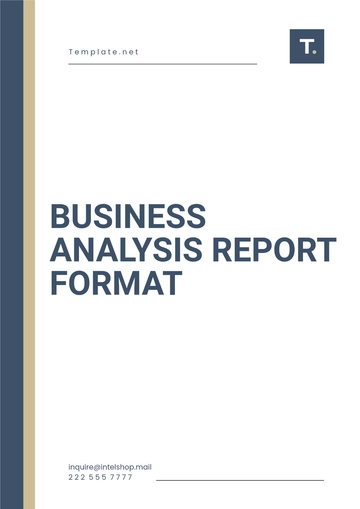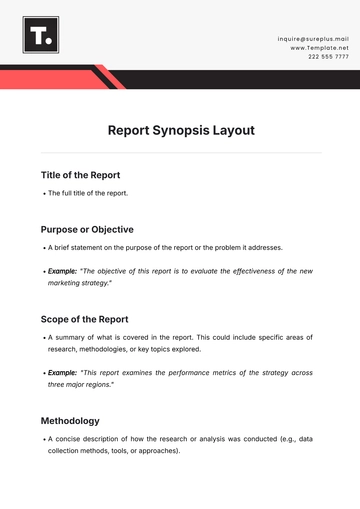Free Movie Theater Local Market Report Layout

I. Executive Summary
(Include an overview of the local market report focusing on the main takeaways and a brief summary of the findings.)
II. Market Overview
(Provide a broad description of the market landscape, including major players, trends, and market size.)
A. Key Players
(List the major movie theater chains operating in the area and their respective market shares.)
B. Market Size
(Give an estimate of the total size of the market in terms of revenue and number of theaters.)
C. Industry Trends
(Discuss any significant trends affecting the market, such as technological advancements or changing consumer preferences.)
III. Audience Demographics
(Analyze the demographics of the typical movie-going audience in the area.)
A. Age Groups
(Provide a breakdown of the audience by age group.)
Age Group | Percentage |
|---|---|
[18-24] | [25]% |
B. Income Levels
(Provide a breakdown of the audience by income levels.)
Income Level | Percentage |
|---|---|
[Below $25,000] | [30]% |
IV. Competitive Analysis
(Examine the competitive landscape within the local market.)
A. Direct Competitors
(Identify other movie theaters in the area, noting their strengths and weaknesses.)
B. Indirect Competitors
(List other entertainment options that compete for the same target audience.)
C. SWOT Analysis
(Include a SWOT analysis highlighting the strengths, weaknesses, opportunities, and threats for the business.)
Strengths | Weaknesses | Opportunities | Threats |
|---|---|---|---|
[Strong brand recognition] | [High operational costs] | [Expansion into neighboring towns] | [Increasing online streaming] |
V. Customer Behavior
(Describe the behaviors and preferences of the local movie-going audience.)
A. Frequency of Visits
(Detail how often customers typically visit movie theaters.)
Frequency | Percentage |
|---|---|
Weekly | [15]% |
Monthly | |
Quarterly | |
Yearly |
B. Preferred Genres
(List the most popular movie genres among the local audience.)
Genre | Percentage |
|---|---|
[Action] | [25]% |
C. Online vs. Offline Ticket Purchases
(Clarify the ratio of online to offline ticket purchases.)
Purchase Method | Percentage |
|---|---|
Online | [60]% |
Offline |
VI. Marketing Strategies
(Outline the current and recommended marketing strategies for the movie theater.)
A. Current Strategy
(Describe the existing marketing tactics and their effectiveness.)
B. Digital Marketing
(Provide recommendations for leveraging digital marketing channels such as social media, email, and online advertising.)
C. Community Engagement
(Suggest ways to engage with the local community through events, promotions, or partnerships.)
VII. Financial Performance
(Present financial data to evaluate the economic health of the movie theater business.)
A. Revenue Breakdown
(Provide a breakdown of revenue sources.)
Source | Revenue |
|---|---|
[Ticket Sales] | [$10,000,000] |
B. Expense Breakdown
(Detail the primary expenses incurred by the movie theater.)
Category | Expense |
|---|---|
[Staffing] | [$2,000,000] |
C. Profit Margins
(Estimate profit margins based on the revenue and expenses.)
Year | Profit Margin |
|---|---|
[2052] | [10]% |
VIII. Recommendations
(Provide actionable recommendations to improve business performance based on the findings.)
A. Marketing Enhancements
(Suggest specific marketing tactics and campaigns to attract more customers.)
B. Operational Improvements
(Offer suggestions for optimizing operations to reduce costs and increase efficiency.)
C. New Revenue Streams
(Identify potential new sources of revenue, such as special events or premium experiences.)
IX. Conclusion
(Summarize the key points of the report and reinforce the importance of the suggested recommendations.)
- 100% Customizable, free editor
- Access 1 Million+ Templates, photo’s & graphics
- Download or share as a template
- Click and replace photos, graphics, text, backgrounds
- Resize, crop, AI write & more
- Access advanced editor
Analyze your local market efficiently with the Movie Theater Local Market Report Layout Template from Template.net! This editable and user-friendly template provides a structured format for market analysis. It is customizable to meet the specific needs of your theater, and the AI Editor Tool allows for quick updates and personalization!
You may also like
- Sales Report
- Daily Report
- Project Report
- Business Report
- Weekly Report
- Incident Report
- Annual Report
- Report Layout
- Report Design
- Progress Report
- Marketing Report
- Company Report
- Monthly Report
- Audit Report
- Status Report
- School Report
- Reports Hr
- Management Report
- Project Status Report
- Handover Report
- Health And Safety Report
- Restaurant Report
- Construction Report
- Research Report
- Evaluation Report
- Investigation Report
- Employee Report
- Advertising Report
- Weekly Status Report
- Project Management Report
- Finance Report
- Service Report
- Technical Report
- Meeting Report
- Quarterly Report
- Inspection Report
- Medical Report
- Test Report
- Summary Report
- Inventory Report
- Valuation Report
- Operations Report
- Payroll Report
- Training Report
- Job Report
- Case Report
- Performance Report
- Board Report
- Internal Audit Report
- Student Report
- Monthly Management Report
- Small Business Report
- Accident Report
- Call Center Report
- Activity Report
- IT and Software Report
- Internship Report
- Visit Report
- Product Report
- Book Report
- Property Report
- Recruitment Report
- University Report
- Event Report
- SEO Report
- Conference Report
- Narrative Report
- Nursing Home Report
- Preschool Report
- Call Report
- Customer Report
- Employee Incident Report
- Accomplishment Report
- Social Media Report
- Work From Home Report
- Security Report
- Damage Report
- Quality Report
- Internal Report
- Nurse Report
- Real Estate Report
- Hotel Report
- Equipment Report
- Credit Report
- Field Report
- Non Profit Report
- Maintenance Report
- News Report
- Survey Report
- Executive Report
- Law Firm Report
- Advertising Agency Report
- Interior Design Report
- Travel Agency Report
- Stock Report
- Salon Report
- Bug Report
- Workplace Report
- Action Report
- Investor Report
- Cleaning Services Report
- Consulting Report
- Freelancer Report
- Site Visit Report
- Trip Report
- Classroom Observation Report
- Vehicle Report
- Final Report
- Software Report





























